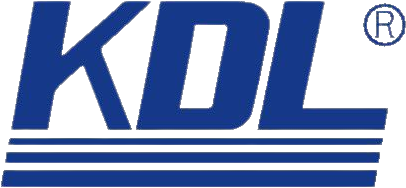
When it comes to treating animals, selecting the right hypodermic needle is crucial for both the effectiveness of the treatment and the comfort of the animal. The choice of needle can impact everything from the accuracy of medication delivery to the overall safety of the procedure. In this blog post, we’ll explore different types of veterinary hypodermic needle, their materials and coatings, sizes and gauges, disposal methods, and costs. By the end, you’ll have a clearer understanding of which needle is best suited for various situations and how to make informed decisions for your veterinary practice.
What is a veterinary hypodermic needle?
These needles are hollow, thin, and typically made of stainless steel. They are designed to penetrate the skin and deliver liquid medications or draw blood from animals. The most common sizes for hypodermic needles range from 18 to 30 gauge, with a smaller gauge indicating a larger needle size.
Why are veterinary hypodermic needles important?
Veterinary hypodermic needles play a vital role in animal healthcare by enabling the effective administration of medications, vaccines, and other treatments. They are essential for precise delivery of medications, which helps in managing and treating various health conditions in animals. Additionally, these needles are used to collect blood and other samples for diagnostic testing, allowing veterinarians to accurately diagnose and monitor an animal’s health.
Uses of hypodermic needles in animal care
Veterinary hypodermic needles are essential in animal care for various purposes, including administering vaccinations, medications, and fluids, as well as collecting blood samples for diagnostics. They are crucial for providing anesthesia before surgeries, delivering euthanasia solutions, and giving hormone or nutritional injections. Each type of needle, with its specific gauge and hub, is selected based on the procedure’s requirements and the animal’s size, ensuring precise and effective care.
Types of Veterinary Hypodermic Needles
Standard Needles
Veterinary medicine most commonly uses standard needles. They come in various sizes and manufacturers typically make them from stainless steel. Professionals find these needles versatile and use them for a range of procedures, from routine vaccinations to administering medications. Their main advantage is their availability and broad applicability. However, they can be prone to accidental needle sticks and may cause discomfort if not handled properly.
Among standard needles, those veterinary hypodermic needles with a Cooper Hub offer a secure fit and ease of use, making them ideal for injections and sample collection. On the other hand, needles with an veterinary hypodermic needles with a Aluminum Hub are valued for their lightweight and durable properties, which contribute to precise injections and efficient sample collection.
Safety Needles
Safety needles are design with built-in shields to prevent accidental needle sticks and enhance overall safety. These shields can retract or cover the needle after use, minimizing the risk of injury. While safety needles offer significant protection, they may be more expensive and can sometimes be less comfortable for animals due to the additional mechanisms.
Insulin Needles
Manufacturers specifically design insulin needles for administering insulin to diabetic animals. They are typically very fine and come in short lengths to ensure precise dosage. The main advantage is their ability to deliver small, accurate doses with minimal discomfort. However, their specialized nature makes them less versatile for other types of injections.
Read More About : Veterinary Needles: A Comprehensive Guide
Factors to consider when selecting a veterinary hypodermic needle
When selecting a veterinary hypodermic needle, you should consider several factors. These factors include the type of procedure you will perform, the size and type of animal, the gauge and length of the needle, and the sharpness and material of the needle. Choosing a needle appropriate for the specific task at hand is important to ensure the safety and comfort of the animal.
Choosing the right gauge and length for the needle
The gauge and length of the needle are important factors to consider when selecting a veterinary hypodermic needle. The gauge refers to the thickness of the needle, with lower gauge numbers indicating thicker needles. The length of the needle should be appropriate for the size of the animal and the depth of the injection site. Choosing the right gauge and length can help minimize pain and discomfort for the animal.
Importance of needle sharpness and material
The sharpness and material of the needle are also important considerations when selecting a veterinary hypodermic needle. Using a sharp needle can reduce tissue damage and pain, while quality material ensures durability. It is important to choose a needle that is both sharp and made of a high-quality material to ensure the safety and effectiveness of the procedure.
Considering the animal size and type when selecting a needle
When selecting a veterinary hypodermic needle, you should consider the size and type of the animal. Thicker needles may be necessary for larger animals, while thinner needles might be suitable for smaller ones. Additionally, different types of animals often have specific requirements for needle size and type. It is crucial to choose a needle that suits the specific animal being treated to ensure optimal results.
Proper handling and disposal of veterinary hypodermic needles
Properly handling and disposing of vet needles ensures safety for animals and handlers. Store needles in a safe and secure location, away from children and pets. Dispose of used needles in a designated sharps container to prevent accidental needle sticks and contamination. It is important to follow proper procedures for handling and disposing of needles to ensure the safety of all involved.
Conclusion
Choosing the right veterinary hypodermic needle involves considering various factors, including type, material, size, and safety features. Understanding these aspects helps select the best needle for your needs and enhances animal well-being.

